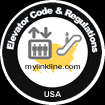
North Carolina Elevator Code 2024
Regulations & Standards
Find the latest information on North Carolina Elevator Code, laws, and safety standards. Our directories are updated monthly and include website links to help you quickly find the elevator codes and regulations for the state of North Carolina (NC)
North Carolina elevator codes impose a responsibility on building owners and property managers to adhere to specific requirements within elevators, ensuring the safety of all occupants. Failure to comply with these codes can result in penalties and potential legal action. While the particulars of the North Carolina elevator code may differ at the state and local levels, three primary codes govern elevator safety: the American Society of Mechanical Engineers (ASME), the International Building Code (IBC), and the Americans with Disabilities Act (ADA).
ADA
The Americans with Disabilities Act (ADA) mandates unrestricted and equal access to services for individuals with disabilities.
IBC
The International Building Code (IBC) establishes precautions against hazards associated with constructed environments.
ASME
The American Society of Mechanical Engineers (ASME) plays a pivotal role in the development of codes and standards.
The State of North Carolina (NC) currently operates under the 2019 ASME A17.1 and CSA B-44 Code
North Carolina Elevator Code Authority
Authorities having jurisdiction are those government officials who are the final authority on questions in a particular area (or jurisdiction). The Department of Labor Elevator Inspection Section oversees all elevators in the state. The Elevator and Amusement Device Bureau checks for the proper installation and safe operation of elevators, escalators, workman’s hoists, dumbwaiters, moving walks, aerial passenger tramways, amusement rides and incline railways.
The bureau also inspects lifting devices for people with disabilities that operate in public establishments (except federal buildings) and private places of employment. Companies or individuals installing equipment, other than amusement rides, under NCDOL jurisdiction must submit prints and applications for approval before installation begins.
Companies or individuals planning to operate amusement devices are required to submit a location notice in writing to the bureau’s Raleigh office at least 10 days before the intended date of operation. The bureau will issue an installation permit, which must be posted on the job site. New installations, as well as alterations to existing equipment, are inspected.
The bureau also conducts regular, periodic inspections of this equipment in the state and inspects amusement rides before they operate at each location. Employers, institutions such as churches and individuals who desire technical assistance in selecting and installing safe lifting devices for people with disabilities can get help from the bureau.
The bureau also offers architects and builders the service of reviewing plans for code compliance on proposed installations of elevators and related equipment. (excerpt from state website)
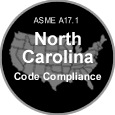
North Carolina Department of Labor
Elevator Cellular Phone Lines
How to eliminate the cost of traditional elevator phone lines and save 35% or more. Our cellular elevator phone lines conform to ASME, ADA, and IBC codes, encompassing all requirements of the North Carolina elevator code.
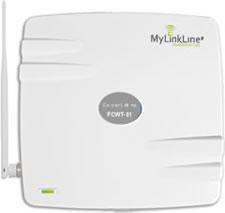
North Carolina Elevator Code also operates under IBC, which includes additional requirements for new elevator installations.
If your elevator travels over 60 feet. A two-way communication system will be installed in the elevator that provides both visible text and audible modes per code requirements. If you’re modernizing the elevator it’s advisable to consult your local North Carolina elevator code authority for guidance on the applicable regulations.
- Two-way message display in the elevator cab for hearing and/or speech impaired
A method for authorized personnel to access video footage of passengers from any location within the cabin - A mechanism triggered by emergency personnel to modify the cabin message, signaling that assistance has arrived on-site
Please be advised that we are committed to consistently delivering accurate and current adoption information. We diligently update our records as new North Carolina elevator code information becomes available.
North Carolina Elevator Code –
Elevator Phone Requirements ASME A17.1
- Two-way communication between elevator and authorized personnel
- On-site communications if over 60 ft of travel
- Communication between the elevator if elevator has remote machine room
- Answer by live authorized personnel – no automated answering
- Communication capability for onsite emergency personnel
- On-site monitoring if staffed 24/7 by authorized personnel
- Location identification on demand to authorized personnel
- Location identification without voice communication
- Hands-free devices only and telephone handsets are not allowed
- Phone automatlly answers when calling into elevator
- Automatic redirect if no answer onsite
- Monitoring the status of local telephone lines and issuing local alerts
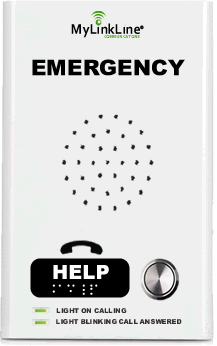
Emergency Elevator Phones
MyLinkLine will only install elevator telephones that meet code requirements. We also comply with ADA, ASME, ANSI and IBC codes in addition to all State and Local requirements if applicable. Volume pricing available.

Elevator Phone Monitoring Service
Our dispatch center has been delivering professional service for over twenty years. Our staff has extensive technical and interpersonal training to assist in emergency and non-emergency situations.
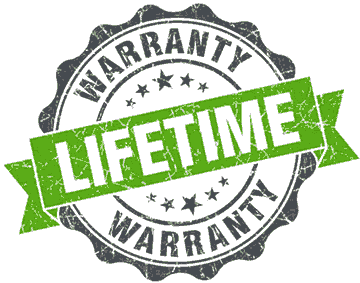
Lifetime Product Warranty
If any part of your elevator telephone(s) or elevator cellular landline fails at any time during your lifetime due to a defect in material or workmanship, we will repair or, at our option, replace the defective device at our cost***
